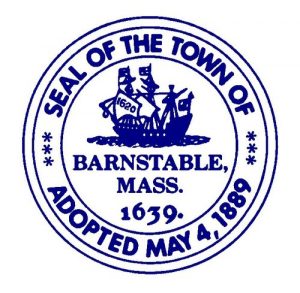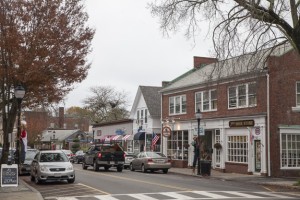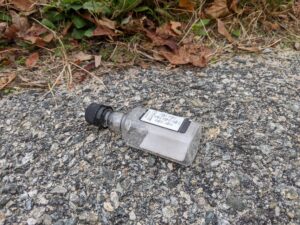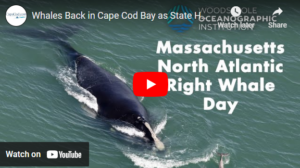
Image of the recently injured calf and its mother, courtesy of the Clearwater Marine Aquarium Research Institute, taken under NOAA permit #26919, and the Florida Fish and Wildlife Conservation Commission, taken under NOAA permit #24359
BOSTON – Newly published research by the New England Aquarium highlights the importance of vessel speed restrictions for protecting endangered North Atlantic Right Whales and other threatened marine mammals.
Scientists performing the study used a new metric in calculating vessel strike risk reductions which studies the relationship between vessel speed and the probability of a deadly strike, the distance travelled by the vessel, and whale habitat usage.
The analysis found that expanding the area covered by 10-knot speed restrictions would correlate with reduced vessel strikes for right, humpback, fin, and sei whales.
“Our research shows the importance of a 10-knot speed restriction, rather than a 12- or 14-knot speed restriction,” said Dr. Jessica Redfern, lead author of the study and associate vice president of ocean conservation science at the New England Aquariums Anderson Cabot Center for Ocean Life.
“It also supports studies that have found the current speed restriction areas are too small,” she continued. “Our study shows that we don’t need to slow vessels down in all US waters, but we need to implement restrictions in larger areas that cover important whale habitats.”
A recent incident in which a right whale calf was observed with severe propeller injuries to its head in the waters off the East Coast has led to increased calls for right whale protection as NOAA considers modifications to the existing vessel speed rule.
Proposed changes include expanding the length and size of seasonal speed restrictions, placing restrictions on most vessels measuring 35 to 65 feet in length, and mandatory speed restrictions in areas frequented by whales.
The study, published by the scientific journal Biological Conservation, can be found by clicking here.
Update 1/26/2024: This story has been updated to correct typos in the quote from Dr. Jessica Redfern, which formerly incorrectly read “Our research shows the importance of a 1-knot speed restriction, rather than a 122- or 14-knot speed restriction.”
























